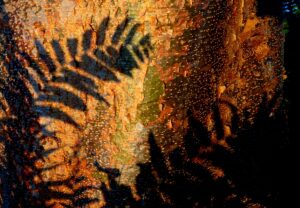Poems by ALEJANDRA PIZARNIK
Translated from the Spanish by ILAN STAVANS

Mexico City, Mexico
Translator’s Note
Translation is home. Whenever I travel, I seek it either by reading translations, or by translating as a grounding exercise. Lately I have been translating into English poems from Jewish Latin American poets, specifically works by conversos or those written in Yiddish and Ladino by immigrants and their offspring. And—in a room of her own—Alejandra Pizarnik, whose life makes me think of Emily Dickinson. I recreated these two poems while visiting my mother, who has been suffering from Alzheimer’s. Pizarnik distills the fibers of existence so as to reveal the madness that palpitates underneath. Her poetry is contagious. The toughest part is to convey her silences. I wish I had met her.
—Ilan Stavans







 .
.








 Berlin, Germany
Berlin, Germany